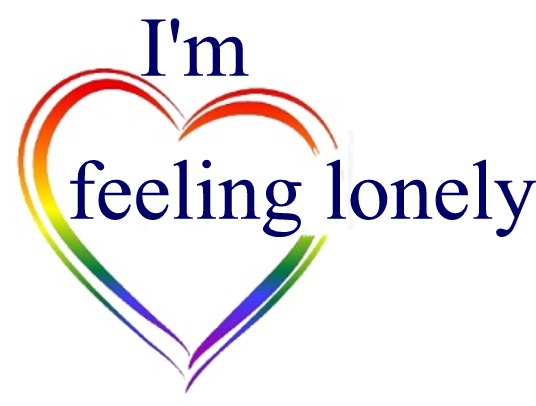Kiwi abroad and lonely
Kiwis love to travel! Many plan on their Big OE as teenagers, saving every cent to get that first trip across to another world. Many choose to join volunteer organisations, study abroad, or to find work to continue earning traveling money. Whether you plan to go with friends or go solo it’s an exciting – and somewhat brave step – to go on your adventure. But even with the best laid plans and new experiences we do feel for you when you get a sudden pang of homesickness, and even worse when that turns into loneliness.
And some of you didn’t plan a life away from New Zealand… a work related situation took you overseas. Your scenario might have been that you were ordered to go in the line of duty to New Zealand, and your family remains behind; or your spouse’s career was very dependent on taking the assignment, and you debated at length whether to go as a family or split the family; or your parents moved and you had no choice but to go. Whatever brought you to the new country, you have had to make significant adjustments to your way of thinking. While it is heartening to hear of success stories, there are many who really struggle with the loneliness that their new situation brings.
We appreciate some of you experience real pain missing your family, your friends and your lifestyle… finding it very hard to transition to a foreign country. Our heart goes to you, especially when you have tried so hard and yet you still find yourself increasingly feeling loneliness.
So if you are one of the many Kiwis who feels lonely as a result of being abroad, or you know of someone who feels loneliness from this, then read on. In fact even if you suspect others might be lonely, and they stoically say they aren’t, it’s worth understanding Kiwi’s abroad and loneliness better.

Scratching the surface of being lonely
Just as you might find it hard to understand how people who have never lived elsewhere might be lonely, it’s also hard for them to really grasp how very lonely you might be: what it’s like:-
Having no friends and family
.... while your partner leads a full and challenging work life.
Feeling trapped
…having to stay where you are because you have run out of money to go anywhere else.
Struggling with the values and attitudes
…of those seasoned expat spouses you are forced to socialise with.
Finding the nights long
…missing being part of a family in the evenings.
Not being able to speak your mind freely
…being in such a conservative country.
Being a Kiwi abroad gives rise to many challenges with regard to feeling lonely...
… and in addition to these, you undoubtedly identify with many of the same loneliness problems that aren’t related to where you are living now.
Prevalence of loneliness
New Zealand has the second most mobile native population in the OECD. More than 600,000 NZ-born Kiwis now live abroad, with over three-quarters living in Australia.
While many Kiwi’s have settled into their new countries – and may have even gained dual citizenship – for some of you there will still be feelings of loneliness, especially if you only recently arrived. And for various reasons some of you will struggle to settle even after months to years of being abroad. For anyone with these feelings of loneliness, we empathise with you.

Exposing loneliness
- You are in an unsafe environment where you cannot leave the secure area on your own.
- You are not able to speak the language and very few locals understand any English, so even small talk at the shops is hard.
- The country you are in changes its policies or is in political upheaval and you find you considerably less supported than expected.
- Work or financial reasons do not enable you the freedom to return ‘home’ to New Zealand as planned.
- Visa issues and high competition with the locals make it impossible for you to work in the new country.
- Your family is split up – you’ve left a spouse or family in New Zealand, or you have had to put your children into boarding school in the new country because there is no good local school.

These are very real issues for you;
and some are not quick fixes! So despite these challenges it’s vital you actively find ways to ensure that you – and those around you – are emotionally healthy.
Exhibiting signs of being lonely
Solitude is very important for people to reflect and to come to grips with their situation. Being lonely for short periods is also not necessarily unhealthy. What we are considering is the type of loneliness which is prolonged and might be damaging to an individual’s health and wellbeing. Some people talk about their loneliness; other’s don’t; some might not recognise that they are actually suffering from loneliness.
When people are already lonely, having people around you that you aren’t able to connect with on a deeper level, might even make your loneliness worse.
Research has shown that when socially isolated people aren’t getting enough regular human contact that can create problems with their family members and people who they do end up talking to.

This manifests behaviour such as:
- Pretending you are alright… struggling with solo travel, but believing your family will think you are a coward returning to New Zealand so soon.
- Hiding the real you… not being able to be the independent woman you were in New Zealand or reveal that you are LBGT.
- Having no conversation other than asking about your spouse’s work day.
- Increasingly putting pressure on your spouse about wanting to leave the country.
- Living like a prisoner… staying inside, feeling too afraid to leave your accommodation.
- Spending an enormous amount of time online, contacting friends and family back home.
These are just the surface of the ways you might be showing signs of being lonely… and that you could recognise in others.
So where to from here?
Conquering loneliness
We appreciate…
you all have a unique story.
How long you have been lonely; What you believe causes your particular loneliness; and what you have already tried to alleviate the loneliness.

To get to the heart of your loneliness we would like to get to know you!
Your personality, your eccentricities, and your values are all part of what makes you feel your loneliness more than some others.
Your next step
We appreciate the trust you would place in us to talk openly and frankly – so we promise no judgements – genuine empathy, respect and confidentiality.
Then when we have understood you better, we can help you move forward. Help you form better connections with your spread out communities, with your friends and your families…wherever they are in the world.
If you are ready to take the next step, click the button to get started addressing your loneliness:
People feel lonely for many reasons. To learn more about other dislocated and lonely categories, select one of the coloured boxes below, or scroll down the “I’m feeling lonely” menu.

With our help you can conquer your loneliness by taking better care of your inner self.
And we can conquer loneliness in New Zealand by better understanding and accepting each other.
So when you are ready…click here.
We look forward to hearing your view of the world!
Statista (2016), “The countries with the most people living overseas.” View the article.
Stats NZ (2012), “Population mythbusters: At least 1 million New Zealanders live overseas.” View the article.
